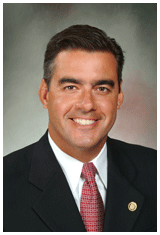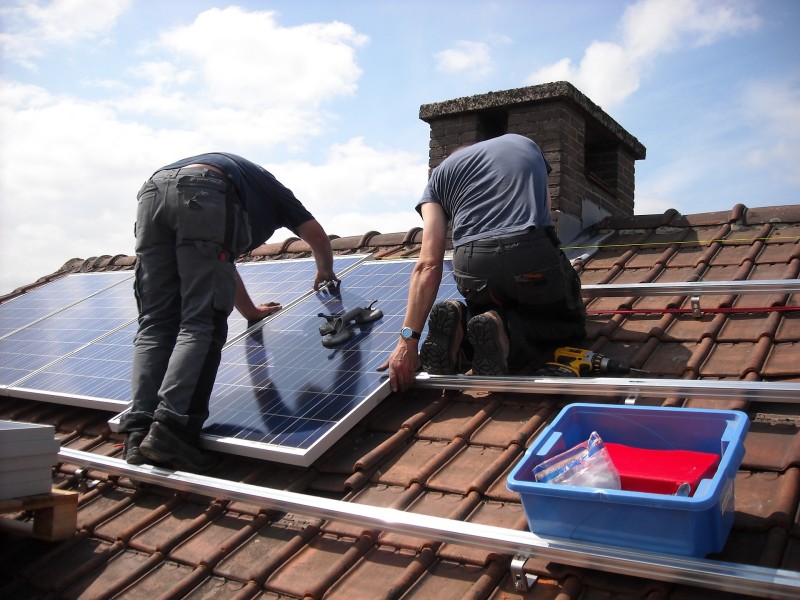Next week, homeowners in Kansas City and Jackson County will become the first in the state able to take advantage of an energy efficiency financing program.
Renovate America, a private partner of the Missouri Clean Energy District (MCED) will offer its HERO Program to residents of those sections of the state that will allow residents to finance energy efficient renovations for their homes.
“We’re excited to collaborate with our local government partners and contractors in the Kansas City metro area to make energy improvements more accessible and affordable for property owners while enhancing local economic growth,” said John Maslowski, a vice president of market development with Renovate America.
Renovate America has been successful with this system in California, where much of the groundwork for energy efficiency renovations has been laid. Now, the company is expanding to states like Florida and Missouri.
How does it work?
The Home Energy Renovation Opportunity (HERO) program, Renovate’s own unique program of contractors, service and products, comes about via Property Assessed Clean Energy (PACE) legislation, which Missouri passed in 2010 with that year’s version of HB 1692. The bill gave municipalities to form individual or collective clean energy development boards that act as independent political subdivisions.
The boards provide financing for clean energy improvements and renovations in both the commercial and residential sectors. Improvements include everything from insulation, caulking and weatherstripping to heating, ventilation and air conditioning (HVAC) improvements and energy recovery systems.
Property owners receive the money upfront to perform those renovations and then pay off that financing through their property tax bill.
The City of St. Louis has its own clean energy development board, but many of the state’s municipalities are a part of the MCED. The district contains over 60 municipalities; including Kansas City, Chesterfield, Independence, Springfield, Kirksville, St. Charles, and many of those towns’ surrounding communities.
Why Missouri chose Renovate America
Maslowski says that public-private partnership means a lot to their company. In the five years since Renovate began operating in California, they have made partnerships with 425 separate governments. They have maintained each one of those partnerships, and their practices seem to have yielded fruit. The San Diego Union-Tribune reported in February that Renovate has raised nearly $200 million in venture capital, and has a 90 percent market share in residential PACE financing.
MCED Executive Director David Pickerill says that pairing with Renovate was an easy decision to make. Pickerill says when Missouri’s PACE law first went into effect in 2010, the MCED focused more on agricultural and commercial renovations. Since Renovate was mainly residential, the two parted ways. However in late 2014, their attention turned more towards the residential aspect of PACE and Renovate gave them the best offer.
Pickerill said the contractors that Renovate selects to make PACE improvements often get the best technology to quickly diagnose home problems, and that choosing them made sense for homeowners.
“They had the most sophisticated technology,” Pickerill said. “If your AC goes out in the middle of the summer or your heat goes out in the winter, you want to get it fixed right now, and that takes sophisticated technology.”
An ethical PACE program
Yet, what really impressed the MCED was the company’s dedication to do right by its consumers.

“There’s a sense they operate at a pretty high ethical level,” Pickerill said. “[They are] very much focused on making sure that the contractors that are participating, are not only qualified but reputable. If a salesperson over-promises and under delivers, they don’t work with them.”
Tom Dempsey has begun working with Renovate Missouri, says that focus on consumer welfare should serve Renovate well.
“That’s certainly going to help them grow their brand nationally, but it’s going to take care of the people I used to represent,” Dempsey said. “Here’s a tool we’re giving to homeowners that will help make this decision to get the energy efficient option and lower their utility bills.”
“We strive to make the HERO program synonymous with consumer protection, really above and beyond,” said Maslowski.
Some concerns raised in the past
However, the picture is not entirely rosy. The HERO financing method offered by Renovate allows for the property itself to be improved, albeit creating a higher individual tax assessment on a property that technically may belong to a bank. As a result, some homeowners that have used PACE-enabled financing have found it more difficult to sell their homes because of the higher taxes on that property. On the other hand, taking these funds results in a lower energy bill each month due to the increased efficiency of the beneficiary.
PACE loans may also prove more expensive than other alternatives. An article in the 2011 University of Colorado Law Review questioned that PACE was more cost-efficient than private financing.
“The initial PACE bond-financed programs…had higher costs than rates for mortgage loans,” wrote Prentiss Cox of the University of Minnesota School of Law. “Berkeley charged homeowners 7.75 percent interest, Sonoma County 7 percent, and Boulder 6.68 percent. Compared to second lien loans contemporaneously available, these costs were higher than, or at best comparable to, private financing. Compared to a first lien refinancing loan with cash out to the homeowner for making the energy improvements, the PACE financing cost for homeowners was much higher.”
Regardless of some of the issues with PACE financing, Dempsey says the big picture favors PACE lending which is why he and Maslowski have worked on getting the word out to municipalities and cities across the state.
“People want to have lower utility bills, and the people want cleaner air,” Dempsey said. “The EPA has a target of reducing CO2 emissions by over 30 percent in Missouri, and the only way you do that is through efficiency and increasing renewables.”







